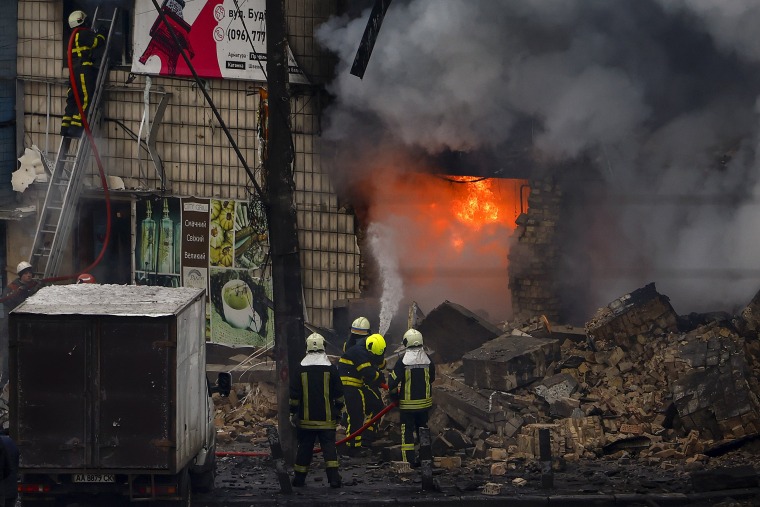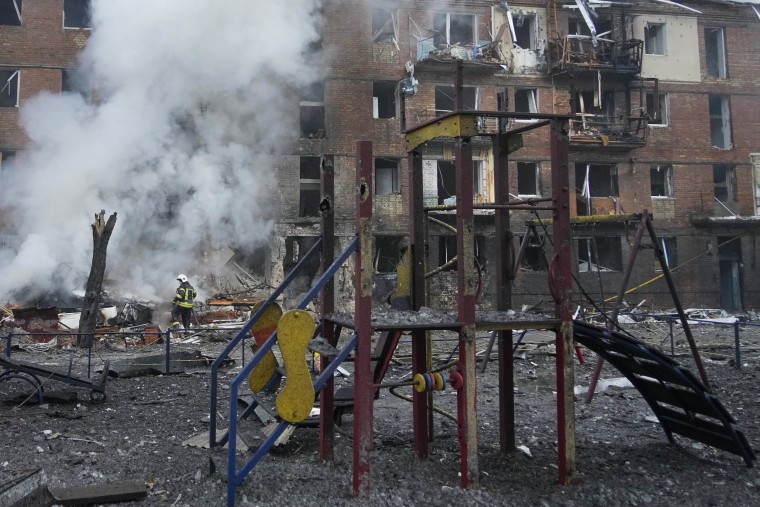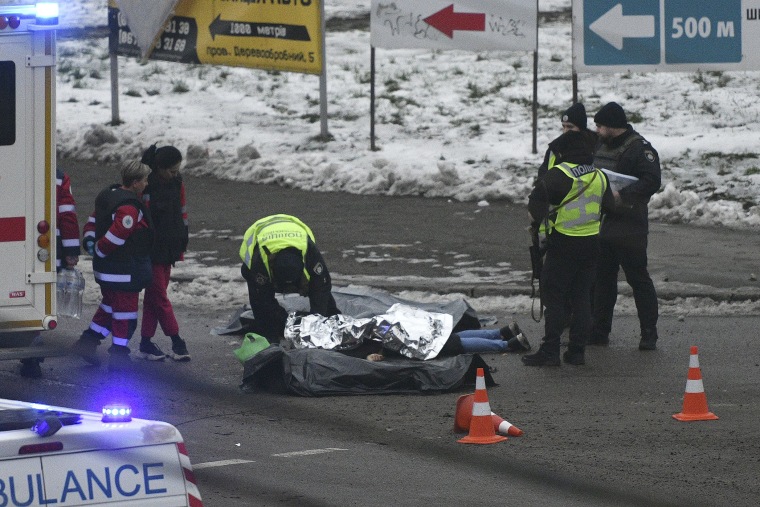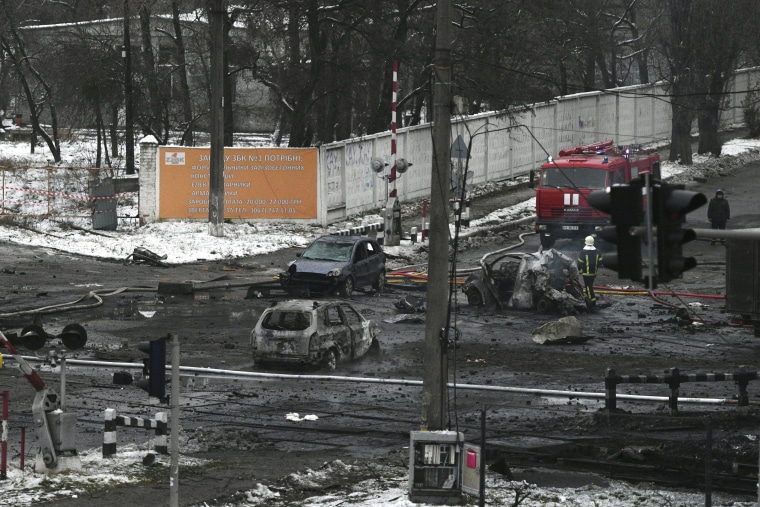KYIV, Ukraine — Rockets rained down on Kyiv and several other Ukrainian cities amid stepped-up attacks Wednesday, less than 24 hours after officials said a newborn became one of the youngest victims of Russian President Vladimir Putin’s war.
After Wednesday's barrage, plumes of smoke rose over the capital, Kyiv, which has been spared much of the violence that struck other parts of the country during most of the war.
A high-rise building was hit and a fire started in Kyiv, Andriy Nebytov, who leads the capital's regional police force, said in a Telegram post, adding that officers were working to clear the debris.
In a separate post to its Telegram channel, the city's military administration said three people had died and six people were injured in the attacks.
Elsewhere, Lyiv Mayor Andriy Sadovyi said the western city was without power. Meanwhile, Vinnytsia regional Gov. Serhiy Borzov said “critical infrastructure facilities” had been hit. Both used their Telegram channels to relay the information.
The strikes came after the newborn was killed when Russian shells pounded a maternity ward in the south of the country late Tuesday, Ukrainian officials said.


The baby’s mother and the attending doctor had been rescued, according to the State Emergency Service of Ukraine.
“Grief fills our hearts — a baby who has just appeared in the world has been killed,” Oleksandr Starukh, the regional governor of the Zaporizhzhia region, said in a post on his Telegram channel.
He added that the “small maternity ward,” had been hit by “huge missiles.”
The two-story building “was destroyed,” the emergency service said in a separate post on its Telegram.
“At that time, there was one woman in labor with a newborn baby, as well as a doctor,” the post said.
Statistics from Ukraine's Prosecutor General Office say that 438 children were killed and another 841 injured since Russia launched it invasion Feb. 24, although the number is likely to be higher.
Russian forces have suffered a series of humiliating setbacks in recent months and Ukraine has retaken significant swaths of land in the south and the east as part of a strong counteroffensive.

Moscow was forced to abandon the key southern city of Kherson last week, the only regional capital it had captured since the war began.
With the Kremlin’s forces on the ground being pushed back, Russia has increasingly resorted in recent weeks to aerial onslaughts aimed at energy infrastructure and other civilian targets in parts of Ukraine it doesn’t hold.
With attacks on Ukrainian infrastructure growing, Ukrainian President Volodymyr Zelenskyy promised that special “invincibility centers” would be set up around his country to provide electricity, heat, water, internet, mobile phone connections and a pharmacy, free of charge and around the clock.
“If massive Russian strikes take place again and if there is an understanding that the electricity supply cannot be restored within hours, the work of the ‘Points of Invincibility’ will be activated,” he said in his nightly video address Tuesday.
“All basic services can be found there: electricity, mobile communication and the Internet, heat, water, and a first-aid kit. Absolutely free and around the clock,” he added.
Zelenskyy’s announcement came after the past week saw the first snow of the winter fall over much of the country amid Russian strikes that have devastated Ukraine’s power infrastructure.
Nine months after the invasion that has left tens of thousands dead, uprooted millions more and pummeled the global economy, authorities warn of power cuts that could affect millions till the end of March.

Average winter temperatures in Ukraine are around 27 degrees Fahrenheit, and are expected to reach minus 4 degrees Fahrenheit in parts of the country in the coming months, the World Health Organization has said.
“This winter will be life-threatening for millions of people in Ukraine,” Dr. Hans Henri Kluge, the United Nations health agency’s regional director for Europe, said Tuesday.
Earlier this week, Prime Minister Denys Shmyhal said that some 8,500 power generator sets are being imported to Ukraine daily.
As the strikes hit Wednesday, battles continued to rage in the east, where Russia is pressing an offensive along a stretch of front line west of the city of Donetsk, which has been held by its proxies since 2014.
The Donetsk region was the scene of fierce attacks and constant shelling over the past 24 hours, Zelenskyy said.
In Crimea, the Black Sea peninsula that Russia annexed from Ukraine in 2014, Russian air defenses were activated and two drone attacks were repelled Tuesday, including one targeting a power station near Sevastopol, the Russian-installed governor, Mikhail Razvozhaev, said in a Telegram post.
Sevastopol is the home port of Russia’s Black Sea fleet.
Cheryll Simpson reported from Kyiv and Henry Austin from London.